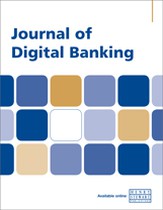Two paradoxes of Open Banking
Abstract
The new services defined in the Second Payment Services Directive — account information and payment initiation — have been a trigger for banks to build new distribution channels that they now market under the term Open Banking. This paper reflects on possibly conflicting market expectations from the word ‘open’ in this respect. Being open might be counter-intuitive to the custodial nature and function of banks as well as to their long-lasting autonomous full-service provider role, which are both still enshrined in current legislation. Recent developments in Open Banking are described by a set of example use cases, which are analysed on regulatory, business and technology aspects. Based on the market expectations and the legislative context, two paradoxical expectations for Open Banking are identified and elaborated, one in the area of business models and the other in the regulatory domain.
The full article is available to subscribers to the journal.
Author's Biography
Max Geerling is Executive Adviser, e-Payments at the Dutch Payments Association, an organisation for credit institutions (banks), payment institutions and electronic money institutions. He is also involved in the management of the iDEAL payment scheme. Max is a business expert in digital payments with a broad background in cards, online and mobile payments. He has prior experience in management positions and as a business consultant. He holds a PhD in computing science from the University of Nijmegen.
